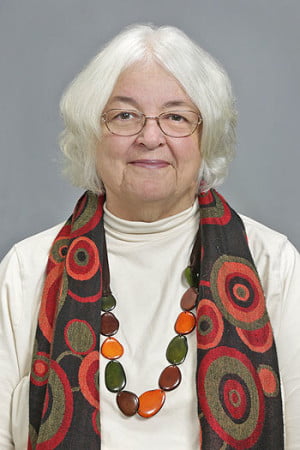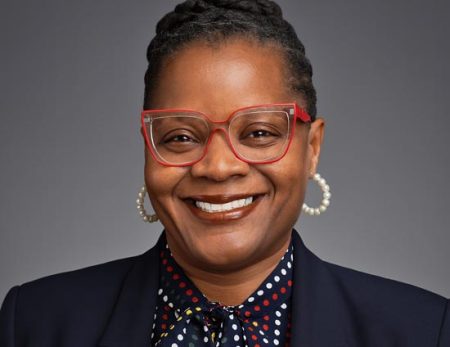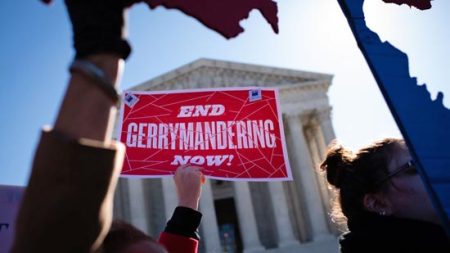The Shape, and Shaping, of Politics
As you consider who will get your vote in this fall’s election, take a cool head into the voting booth with you.

Photo: Tim Barnwell
Legislative News by Nelda Holder –
As a child, growing up in a rural area of Wake County where I never knew a Republican, voting was as much a part of life for the adults around me as sitting down to an extended family meal on Sundays.
It was just something you did. And sitting around during the week at my grandmother’s little country store, you might argue until the cows came home (literally—to my granddaddy’s dairy barn) about this or that candidate and his (yes, HIS) positions, but you voted. And in that time and place, you voted Democrat.
I still get a giggle in my throat thinking about our Methodist church in the nearby town, where holy H*ll broke loose amongst the more politically vocal when a certain member of the church leadership was rumored to be supporting a Republican in the upcoming election. Fortunately, the Spirit of God descended upon the scene and this person was not discharged from their position of prominence, but it left a lasting impression on me—and I suppose several others.
Then, as I may have mentioned before when I get on these reminiscent jags, there was the day in 1951 that the curmudgeonly old farmer from across the highway heard my grandmother announce to the world (which consisted of the people who sat around her store and held court on any subject they chose) that she was voting for “Ike.” He promptly stood up on his thoroughly Democratic legs and walked out of the store without saying a word.
I always thought he never came back. My brother thinks he finally gave in to the social current that flowed so strongly in the direction of that little store at the crossroads. But that story has stuck with me as one of the flashing diamonds of my early political path.
Me? I’ve been registered “unaffiliated” almost all of my adult life. Maybe it’s because I enjoy watching the game the Democrats and Republicans play—which brings back those store memories and thoughts of those good people who would have never even thought of not voting in an election.
And certainly it’s been a sensible position for someone who has been a journalist for many years. Such registration—to me, at least—has always bespoken an arm’s length from issues that need to be judged with an independent perspective.
But these days I think a lot about those one-for-all, all-for-one days of politics I saw as a kid.
My grandmother hadn’t really changed one whit in character because she was thinking of voting for the war hero who helped bring her military son home alive. But it took some nerve to announce it to that pack of Democrats at the store.
I feel like the metaphorical shoe is on the other foot these days. And if my grandmother was still here and still running a country store, but the store crowd was Republican instead of Democratic, a very different thing might have happened when she announced she was breaking ranks and voting for Joe Biden.
Maybe every member of her store audience would have gotten up and left. Maybe a couple of them would have toppled some displays on their way out. And Lord knows one or more of them might have drawn their guns and brandished them. Or come back that night and burned down the store.
People—we are in grave danger of losing our rational national minds. Reactionary tendencies have control of too large a contingent of the body politic. Vilification is the norm.
So I’m asking you, as you consider just exactly who will get your vote in this fall’s election, to take a cool head into the voting booth with you. Which candidates offer evidence that they have the good of the whole community in their sights, and which have the “good” of something else entirely—be that party loyalty, ideological fealty, subservience to the lure of power, or simple personal gain? Choose wisely.
Early voting begins October 20, and Election Day is November 8, 2022.
Registration information, voting hours, and sample ballots are available through the NC State Board of Elections website (ncsbe.gov) or the Buncombe County Board of Elections (www.buncombecounty.org/governing/depts/election/Default.aspx). For assistance, call Buncombe County Election Services at (828) 250-4200.
When the snowball meets the U.S. Supreme Court
Last month in this humble space, we were discussing a move by the litigious heads of the North Carolina Legislature, House Speaker Tim Moore (R) and Senate President Pro Tem Phil Berger (R). It was a challenge filed in the Supreme Court of the United States to prohibit state courts from deciding the constitutionality of congressional and legislative districts in this state, claiming that power belongs to the Legislature alone.
The challenge came about because of the recent court action involving redistricting and gerrymandering in the state of North Carolina.
This issue has mushroomed considerably, with intense national attention to a case that could severely disrupt redistricting norms around the country. The amicus brief filed by the national Conference of Chief Justices (CCJ) brought the opposition to this intervention into sharp focus, noting that such briefs are only filed “when critical interests of the state courts are at stake.”
At issue is nothing less than the “authority of state courts to interpret and review the constitutionality of state laws regulating the time, place, and manner of federal elections.” North Carolina would not be the only state government and court system in play—all 50 states could be affected. As a result, opinions are flying into the Supreme Court and into the press to earnestly debate what could be a destabilizing change in our democratic system.
The CCJ hales back to 1949, when it was first organized by the Council of State Governments. It studies policy and issues statements pertaining to the states’ judiciaries. In arguing against the Berger position before the Supreme Court, the Conference of Chief Justices’ brief states as follows:
“The Elections Clause of the US Constitution provides that the ‘Times, Places, and Manner of holding Elections for Senators and Representatives, shall be prescribed in each State by the Legislature thereof.’”
But judicial review of said Legislature’s actions, it notes, preceded the founding of the nation, according to the brief, and is:
“[e]mbedded in the US Constitution and numerous state constitutions of the Founding era…. State courts in at least seven states invalidated state or local laws under their State constitutions before 1787.” (Citing The Origins of Judicial Review.)
The document goes on from there to explain the Conference’s position fulsomely, but that’s the gist of it—that the Framers of the US Constitution “recognized … the judiciary would construe and constrain the legislature’s enactment.”
Raleigh’s News & Observer—in the company of a number of other news outlets and commentators—opined that this case “will have massive implications for the 2024 elections and the future of American elections if the state’s Republican legislators win their argument.” Such action would align with a “controversial legal argument known as the ‘independent state legislature theory’”—suggested by the late Justice Antonin Scalia in the Bush v. Gore case in 2000. Scalia’s argument was that state courts should not be “allowed to rule a legislature’s election-related actions unconstitutional.” It is that argument that the Conference of Chief Justices is opposing, and which the NC Supreme Court has ruled a “repugnant” idea with “absurd and dangerous consequences.”
In plain talk—the leaders of the NC General Assembly are pursuing legal, and unchallengeable, control over the drawing of district lines for Congressional elections in this state. There would be no recourse for individuals or for advocacy organizations to challenge district maps, no matter how distorted they may be or how those distortions cripple fair representation.
“Why?” Best we contemplate that.
Arguments before the US Supreme Court are expected later this year. We are watching a pivotal moment in our democracy.
Nelda Holder is the author of The Thirteenth Juror – Ferguson: A Personal Look at the Grand Jury Transcripts.








